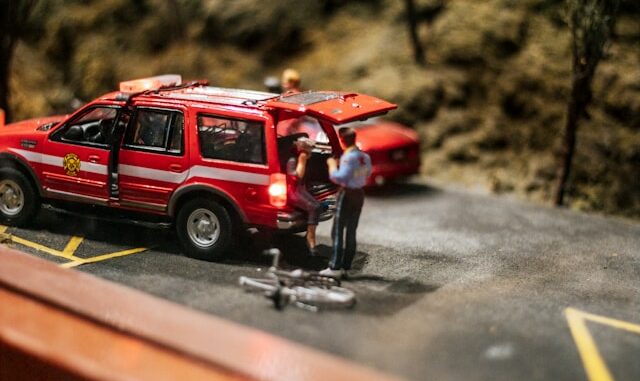
The aftermath of a car accident can be physically and emotionally challenging. While medical attention addresses immediate injuries, medical rehabilitation plays a crucial role in helping you regain strength, mobility, and independence. Fortunately, Ontario’s Accident Benefits system offers financial support for these essential services through Medical and Rehabilitation Benefits. This article explores the various types of rehabilitation covered, eligibility criteria, and navigating the claims process.
What are Medical and Rehabilitation Benefits?
Medical and Rehabilitation Benefits are financial reimbursements provided by your car insurance company to cover the costs associated with treatment programs designed to improve your physical functioning and overall well-being after a car accident. These benefits aim to restore your ability to perform daily activities and return you to work or your pre-accident level of function.
Types of Medical Rehabilitation Services Covered
A wide range of medical and rehabilitation services fall under the umbrella of Accident Benefits coverage, including:
- Physiotherapy: This therapy focuses on restoring muscle strength, improving flexibility, and regaining range of motion after injuries to muscles, bones, and joints.
- Occupational Therapy: Occupational therapists help you relearn essential daily activities like dressing, bathing, and meal preparation, allowing you to regain independence in your daily life.
- Speech-Language Pathology: If your injuries affect your communication abilities, speech-language pathologists can help you improve speech clarity, swallowing function, and cognitive skills.
- Cognitive Rehabilitation: This therapy targets cognitive impairments like memory, attention, and problem-solving that may arise from head injuries.
- Assistive Technology Training: Learning to use assistive devices like wheelchairs, braces, or prosthetics can be a crucial part of rehabilitation. Benefits may cover training on using these devices effectively and safely.
- Psychological Counselling: Coping with the emotional trauma and stress of a car accident can be challenging. Psychological counselling can provide support in managing anxiety, depression, and other emotional struggles.
Eligibility for Medical Rehabilitation Benefits
To be eligible for Medical Rehabilitation Benefits, you must meet the following criteria:
- Have a medical diagnosis: Your doctor must diagnose a physical or cognitive impairment resulting from the car accident.
- Require a rehabilitation program: A medical professional needs to recommend a specific rehabilitation program to address your functional limitations.
- Demonstrate progress: You must show improvement in your functional abilities with ongoing rehabilitation treatment.
Maximizing Your Medical Rehabilitation Benefits Claim
- Seek Early Medical Attention: Getting a prompt medical evaluation and diagnosis allows for early initiation of a rehabilitation program, potentially leading to faster recovery and a smoother claims process.
- Maintain Open Communication with Your Doctor: A collaborative approach with your doctor is crucial. They should provide detailed documentation of your injuries, functional limitations, and the recommended rehabilitation program, including the expected duration and frequency of treatment.
- Work with a Qualified Rehabilitation Team: Choose experienced therapists specializing in treating injuries similar to yours. Their reports will be vital in supporting your claim.
- Keep Detailed Records: Maintain receipts for all rehabilitation services, including therapy sessions, assistive devices, and any other program-related costs.
Important Considerations:
- Benefit Limits: There is a statutory limit of $65,000 for medical and rehabilitation benefits and attendant care combined over five years for non-catastrophic injuries. For catastrophic injuries, the limit is $1 million and lasts a lifetime. Optional coverage on your policy may increase these limits.
- Pre-existing Conditions: If you had a pre-existing medical condition, your insurance company may only cover the portion of your rehabilitation program addressing the accident-related aggravation of that condition.
- Disputes with your Insurance Company: If your claim is denied or benefits are deemed insufficient, you have the right to dispute the decision through an independent dispute resolution process.
Conclusion
Medical and Rehabilitation Benefits are a valuable resource, empowering you to regain your physical and functional abilities after a car accident. By understanding the covered services, eligibility criteria, and proactive claim management strategies, you can ensure you receive the necessary support on your road to recovery. Remember, this article provides general information, and it’s always recommended to consult with your doctor and potentially a lawyer for specific details and guidance regarding your unique situation. By working together with your healthcare team and insurance company, you can navigate the claims process effectively and access the resources needed to heal and reclaim your life.
